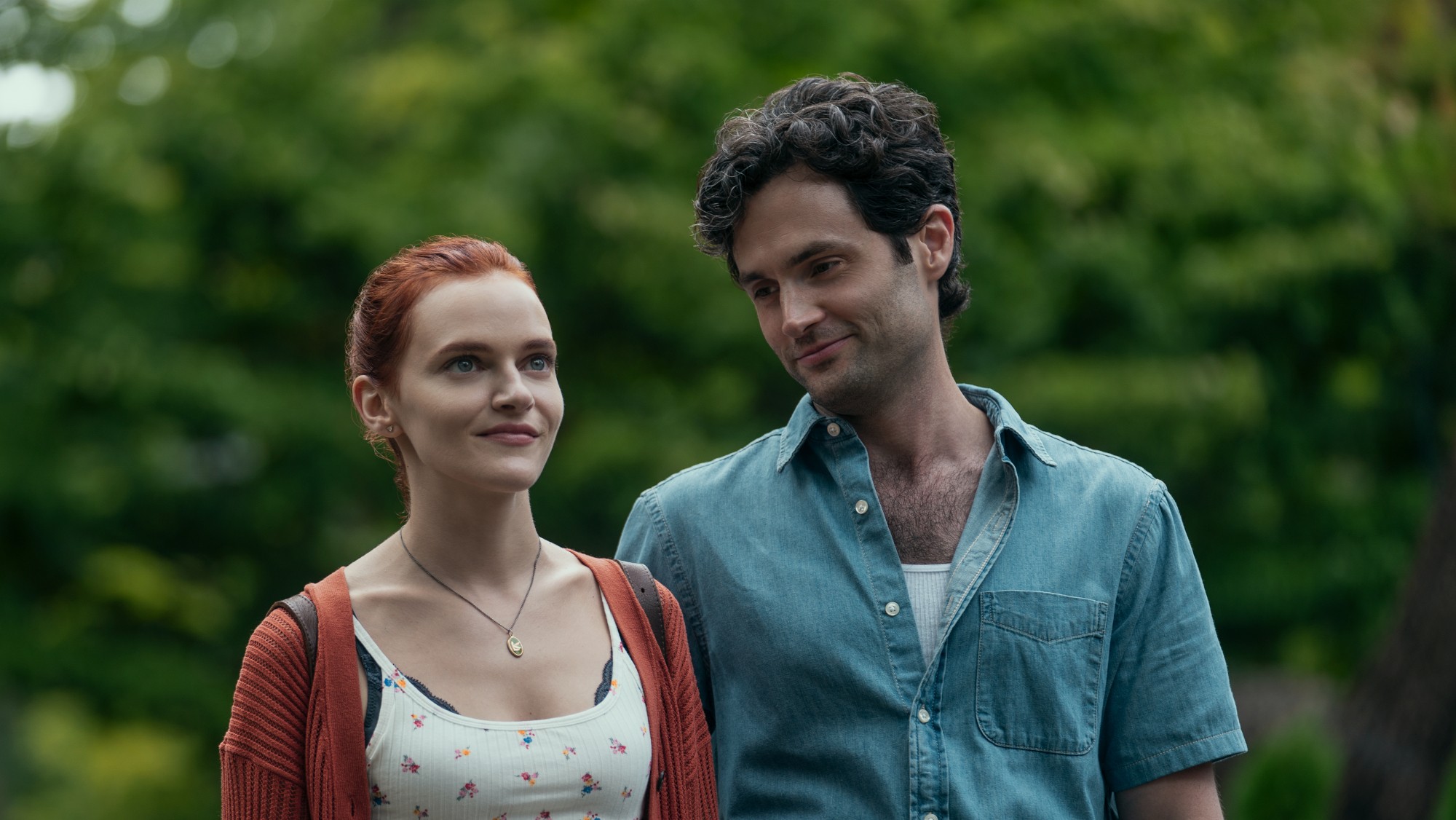What to Watch Verdict
'Madres' cannot balance the stinging dehumanization of its themes with horrors that leave no lasting impression.
Pros
- +
🔫 Informative immigration terrors
- +
🔫 Stellar performances for the material
Cons
- -
🔫 Horrors lack
- -
🔫 Intentions outweigh execution
As Ryan Zaragoza's Madres concludes this year's Welcome to the Blumhouse coverage, so closes a noticeable strive towards telling less represented stories. Writers Mario Miscione and Marcella Ochoa recall court cases that exposed a 1970's National Eugenics Movement under American operations. Practitioners sterilized roughly 64,000 women and children without consent; an ICE Detention Center in modern Georgia has been accused of similar practices. Lawsuits pursued by Mexican immigrant women resulted in zero justice served, which is the basis for Zaragoza's pregnancy thriller about — you guessed it — a Mexican couple chasing an American dream that leads to xenophobic treatments in unwelcome territories.
Beto (Tenoch Huerta) and Diana (Ariana Guerra) are the expecting Mexican-American parents in question — new residents to California's migrant farming community Golden Valley. Beto assimilates easier than Diana since the latter was raised more American, which leads to "whitewash" in-language insults because it's the sparse Spanish Diana can translate. Any relocation is taxing, but Diana feels isolated and ostracized on top of her pregnancy symptoms, which are overseen by Golden Valley's Dr. Bell (Robert Larriviere). Matters only get worse when Diana experiences night visions about her unborn baby and fears pesticides are harming local women who appear jealous of her baby bump — a small town's ghosts come to haunt its newest resident.
The horrors of Madres are best conveyed in an opening title crawl that reads "based on a true story," followed by closing text that reveals the information about immigrant reproductive abuse mentioned above. Like Gigi Saul Guerrero does in an episode of Into the Dark, "Culture Shock" — where patriotism and red-hatted greatness becomes a monster's motivation — Zaragoza maintains mortifying domestication nightmares. Any specters and mad doctors made for cinema aren't nearly as frightening as the implication that such atrocities could occur in reality. The blending of fact and fiction becomes something that stews together, as the importance of Miscione and Ochoa's screenplay shines throughout genre embellishments.
"Importance" ties back to the urgency behind Welcome to the Blumhouse in 2021 — it is just that the package in which Madres wraps its message lacks too many descriptors. Zaragoza finds restrictions in Blumhouse Television's model — think Into The Dark, and why those titles never felt like full features — because there's an emptiness about Beto's employment dilemma and Diana's dissociation with her heritage. It's a barebones retelling of outsider fears, between what presents itself as ritualistic curses and Diana's discouraged paranoia as she's distrusted for her American sensibilities but still treated as an invader who doesn't belong on United States soil. There's nothing beyond stylistic signatures that saturate its scariest attempts in darkness and rural desolation that musters atmosphere on an appropriately impoverished minimum — the translation of which is rather unassuming for such an enraging thematic journey.
Diana becomes the reincarnation of those Mexican women who challenged America in court over its sterilization tactics, as Beto remains enraptured by his English-speaking boss Tomas (Joseph Garcia) — who goes by "Thomas" — and Tomas' refreshing agua fresca recipe. I once again bring up Culture Shock as a comparison point about sacrifices made in the name of Americanization, except Madres never finds its defining signatures. We still remember Guerrero's usage of greasy junk food, American flag color patterns and suburbia brainwashing, whereas Zaragoza's grounded delivery never elevates above the replication of low-budget horror anchors that weigh down projects. It's a washover in horror terms that evaporates and leaves no trace afterward.
Madres succeeds in spotlighting tragedy under the guise of American ideals gone awry. Miscione and Ochoa envelop Diana's bodily autonomy focus in plights of the Mexican immigrant who cannot win despite efforts to seek a more comfortable lifestyle — atop the traumatizing realization that Mexican women are being stripped of their motherly rights sans consent. It's the epitome of governmental horrors bred from racists histories, which leads to disappointment when addressing Zaragoza's film as an underwhelming whole. Intentions and actuals are at odds in Madres — a film that demands to be seen based on narrative indictments but consistently makes the meh-ist, not most, of its horror-representation crossroads.
Madres is now available to stream on Amazon Prime Video.
Matt Donato is a Rotten Tomatoes approved film critic who stays up too late typing words for What To Watch, IGN, Paste, Bloody Disgusting, Fangoria and countless other publications. He is a member of Critics Choice and co-hosts a weekly livestream with Perri Nemiroff called the Merri Hour. You probably shouldn't feed him after midnight, just to be safe.












